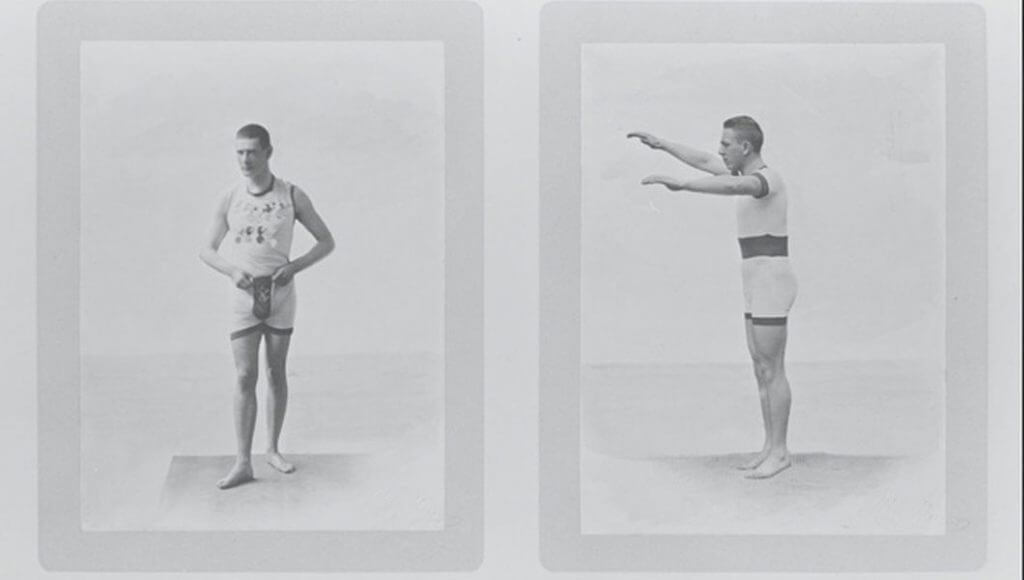Hungary’s Alfréd Hajós Overcomes Heartbreak to Become First Olympic Champion

By Joe Buchanan, Swimming World College Intern.
The 17th FINA World Aquatics Championships are currently underway in Budapest, Hungary. A time when the best swimmers in the world come together to compete in all areas of aquatic sports. The cutting edge of swimming will be on display this week in a pool planned by and bearing the name of one of the forefathers of modern swimming: Alfréd Hajós. Hajós holds the title of the first ever Olympic swim champion. Born in 1878 as Arnold Guttmann, he was raised in Budapest.
Tragedy struck Guttmann at 13, when his father drowned in the Danube River. He changed his surname to Hajós, meaning sailor, and began his swimming career.
Hajós was an architecture student when the first modern Olympic games occurred. The 1896 Summer Olympic Games was hosted by Athens and Hajós was determined to attend. However, the university he attended was less enthused, as Hajós struggled to get permission to have his absences from classes excused to attend the games. Through some effort though, Hajós was able to attend the games.
There were three swim events slated for the 1896 Olympics: the 100-meter, 500-meter, and 1,200-meter freestyle all of which were held in rapid succession, one after the other. Hajós was slated to swim all three swimming events, however due to the conditions of the water and lack of rest time between events, he had the scratch the 500-meter.
The organizers of the 1896 Olympics had refused to build a pool for the swimmers, so all swim events took place in the frigid waters of the Bay of Zea. For the 1,200-meter race, swimmers would board a boat that would take them 1,200 meters from shore, and swimmers were to race back. Following his victory in the 100-meter freestyle, Hajós tried covering himself in a thick layer of grease to protect against the cold water during the 1,200-meter, but it seemed to have no effect as, in an interview following his victory, he said “my will to live completely overcame my desire to win.”
Hajós won gold in both the 100-meter and the 1,200-meter races that he competed in. He set the inaugural Olympic record times for the 100-meter freestyle at 1:22.22, and the 1,200-meter at 18:22.2. To put that into perspective, the current Olympic record for the 100-meter freestyle was set by Eamon Sullivan in 2008 at 47.05, and while the 1,200-meter freestyle no longer exists, the current Olympic record for the 1,500-meter freestyle was set in 2012 by Sun Yang at 14:31.02.
Following his Olympic success, Hajós returned to Hungary, where instead of a warm welcome, his professor told him, “your medals are of no interest to me, but I am eager to hear your replies in your next examination.”
Hajós did not return to the Olympics for swimming again, instead he focused on his career in architecture. He returned to the Olympics in 1924 as part of an art competition in which his colleague Dezső Lauber and himself won the highest award, the silver medal, in architecture, making Hajós one of only two Olympians ever to win medals in both Olympic sport and art competitions.
Before Hajós’ death in 1955, he built what is now known as the Alfréd Hajós Swimming Complex on the Danube River that has housed three European Aquatics Championships, as well as the 2006 Water Polo World Cup and most recently, the current FINA World Championships. Prior to his death he was awarded the Olympic diploma of merit by the IOC in 1953. He was also inducted into the International Jewish Sports Hall of Fame in 1981.




Good article Joe, thanx.
Alfréd (18) trained in a pool (Rudas, exists presently, too) with 27-28 degrees Celsius for the OGs.
The water temperature was 11-13 degrees Celsius in the bay (first part of April).
Yes, the 1200m started from a boat but the 100m started from the shore.
He is not the only person with the first (2) Hungarian Golds in he Games, but naturally the 1st winner in swimming, too.
The King of Greece (George I) held a recepcion after the races. The King asked “Where did you learn swimming so well?” Hajós’s answer was: “In the water Your Majesty” 🙂
Hi “Brownish”, do you have any source for Hajos’ answer to the King’s question?